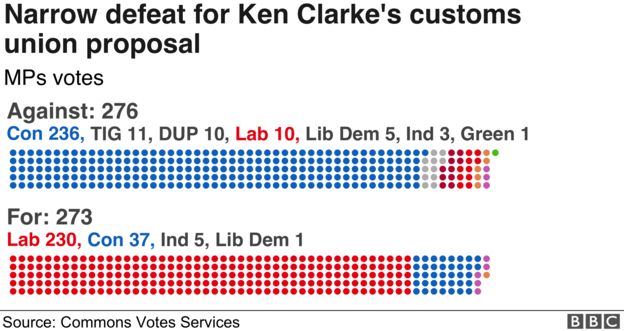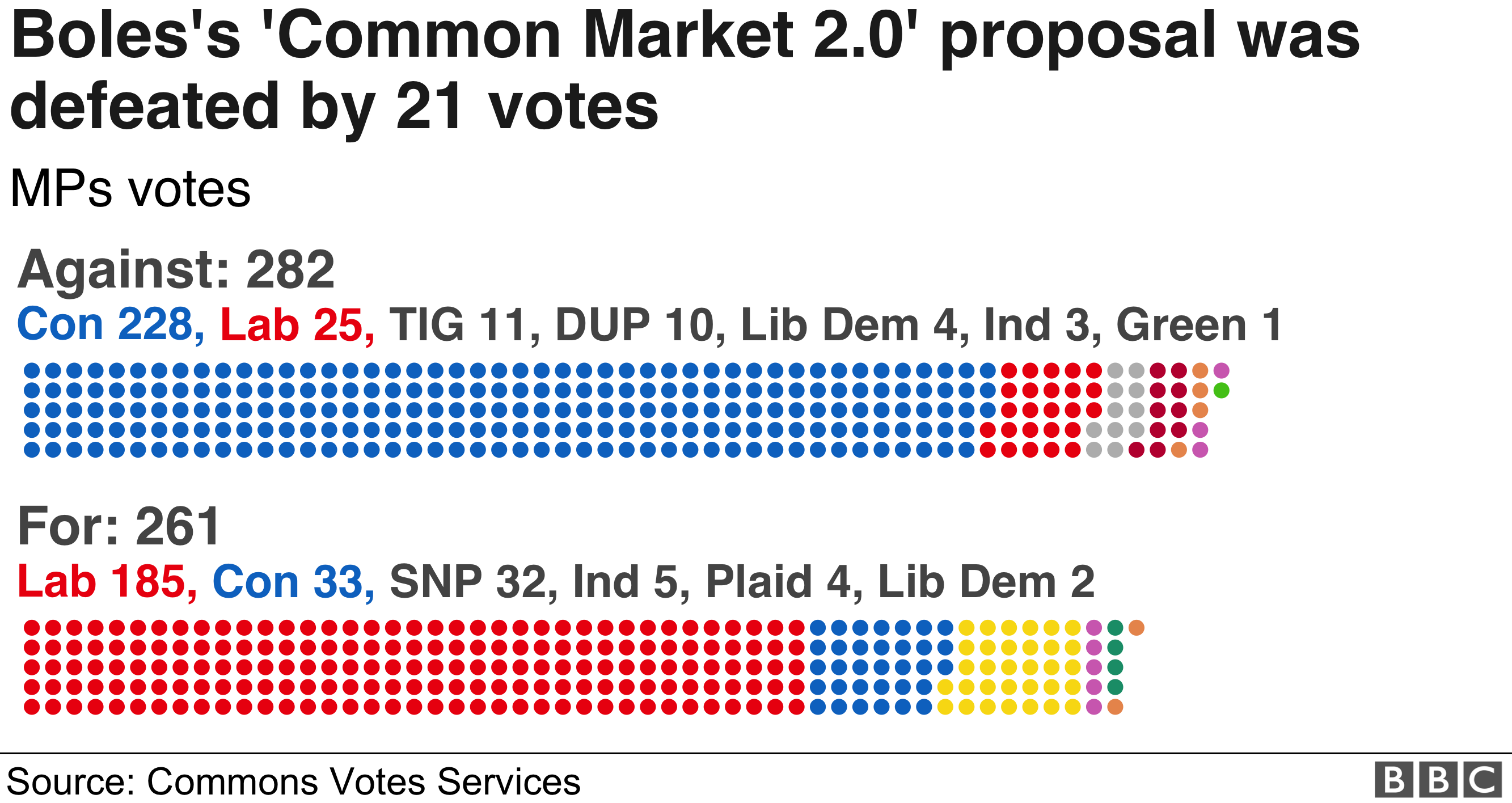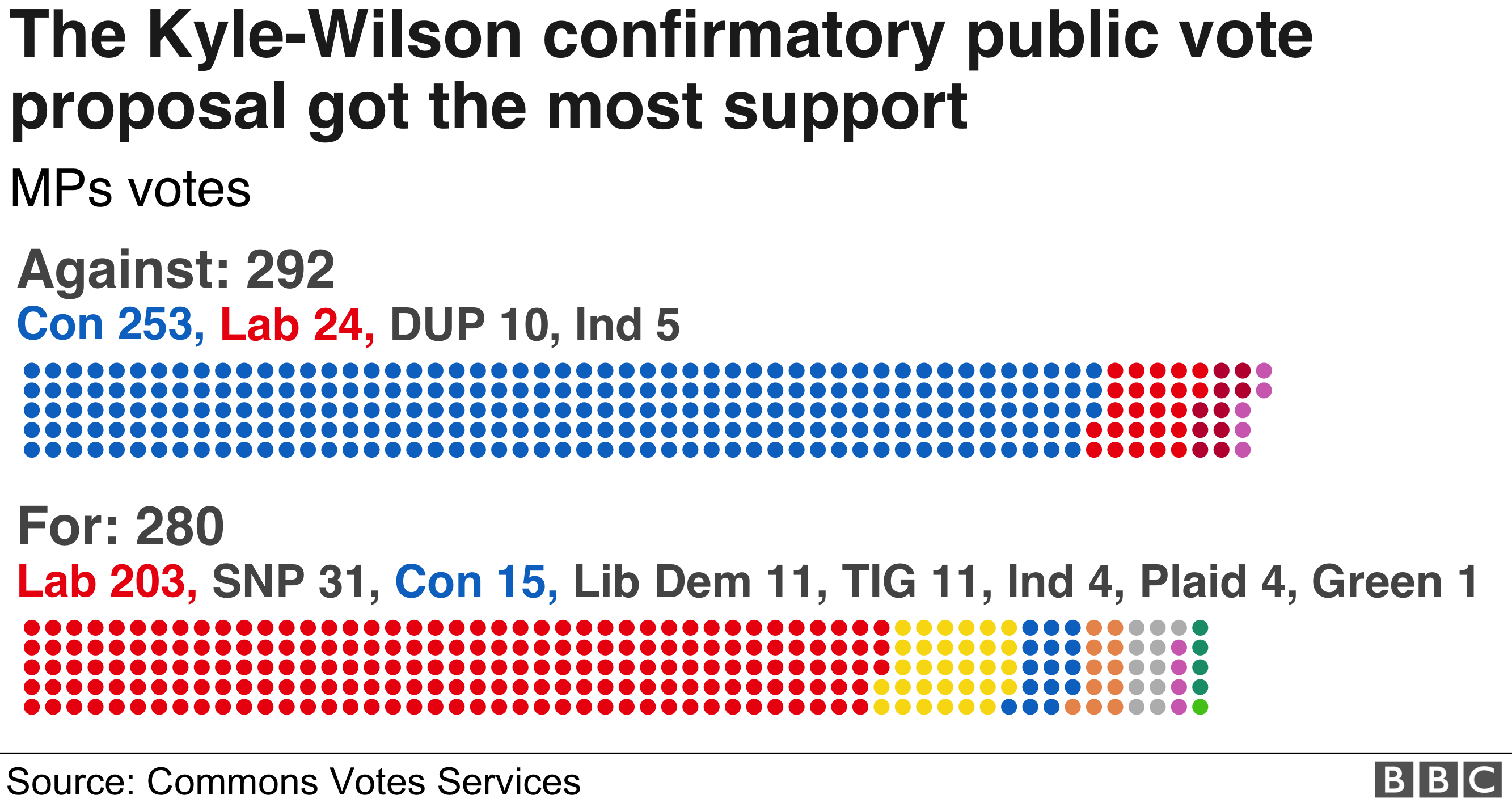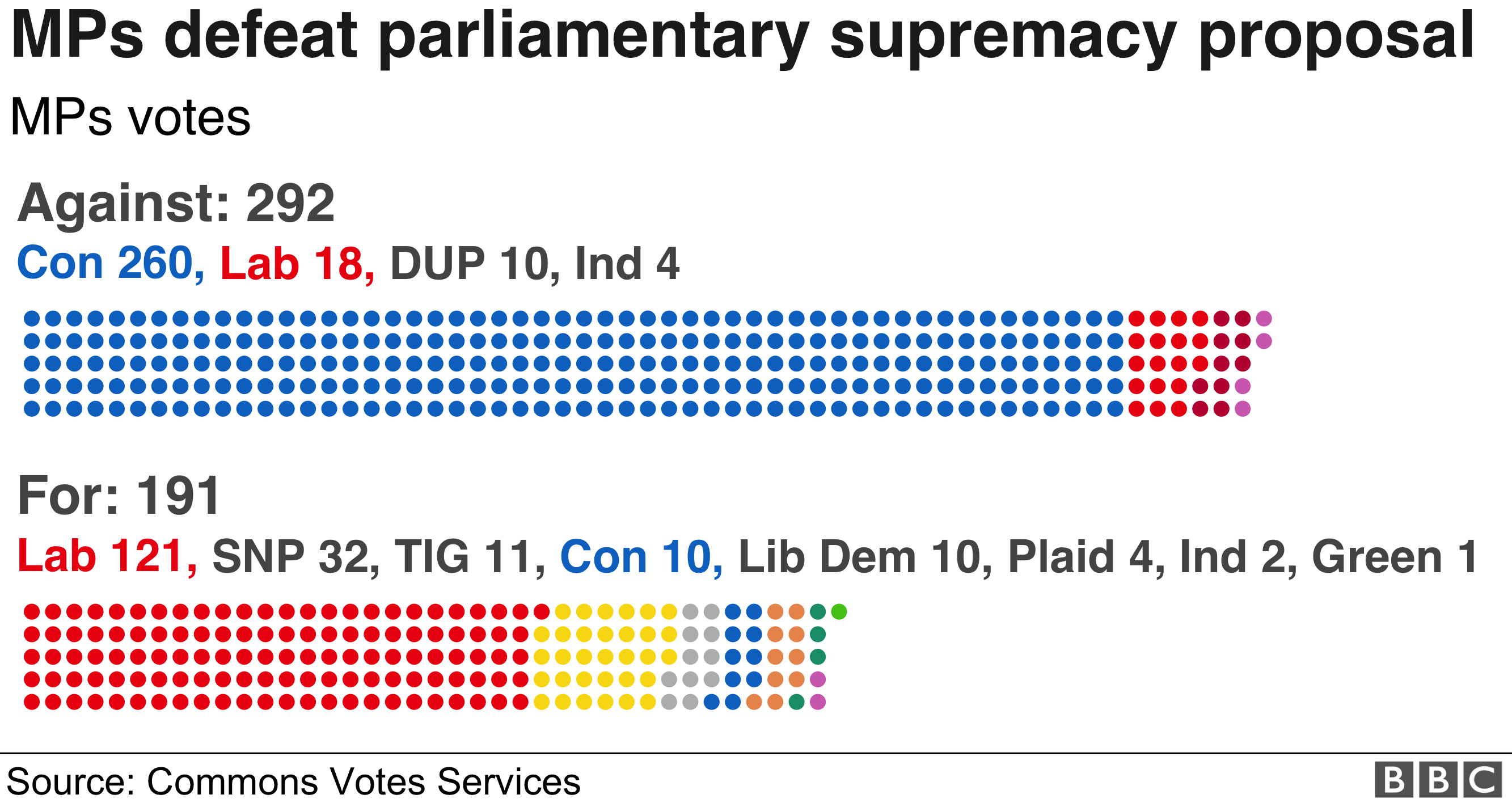

A no-deal Brexit is now more likely but can still be avoided, the EU’s chief negotiator has said.
On Monday night, MPs voted on four alternatives to the PM’s withdrawal deal, but none gained a majority.
Michel Barnier said a long extension to the UK’s current 12 April exit date carried “significant risks for the EU” and that a “strong just
ification would be needed” before the EU would agree.
Theresa May is set for five hours of cabinet talks to tackle the deadlock.
MPs rejected a customs union with the EU by three votes while a motion for another referendum got the most votes in favour, but still lost.
The so-called indicative votes were not legally binding, but they had been billed as the moment when Parliament might finally compromise.
That did not happen, however, and one Tory MP – Nick Boles, who was behind one of the proposals – resigned the whip in frustration.
Brexit Secretary Stephen Barclay told MPs that if they wanted to secure a further delay from the EU, the government must be able to put forward a “credible proposition” as to what it would do.
One suggestion has been the possibility of a general election – but former foreign secretary Boris Johnson told BBC political editor Laura Kuenssberg that would likely “infuriate” voters.
Instead, Mr Johnson said he believed a new leader and “change in negotiation tactic” could “retrofit” the PM’s “terrible” agreement with the EU.
Labour MP and chairman of the Brexit select committee Hilary Benn told BBC Radio 4’s Today that a confirmatory referendum was the best solution.
“A good leader would be taking that decision and put it back to the people,” he said.
“[The] fear is that the PM is not going to move an inch. That is why we are at a moment of crisis.”
Speaking on Tuesday morning, Mr Barnier said: “No deal was never our desire or intended scenario but the EU 27 is now prepared. It becomes day after day more likely.”
Mrs May’s plan for the UK’s departure has been rejected by MPs three times.
Last week, Parliament took control of the process away from the government in order to hold a series of votes designed to find an alternative way forward.
Eight options were put to MPs, but none was able to command a majority, and on Monday night, a whittled down four were rejected too. They were:




Those pushing for a customs union argued that their option was defeated by the narrowest margin – only three votes.
It would see the UK remain in the same system of tariffs – taxes – on goods as the rest of the EU – potentially simplifying the issue of the Northern Ireland border,but prevent the UK from striking independent trade deals with other countries.
Those in favour of another EU referendum pointed out that the motion calling for that option received the most votes in favour, totalling 280. – bbc.com